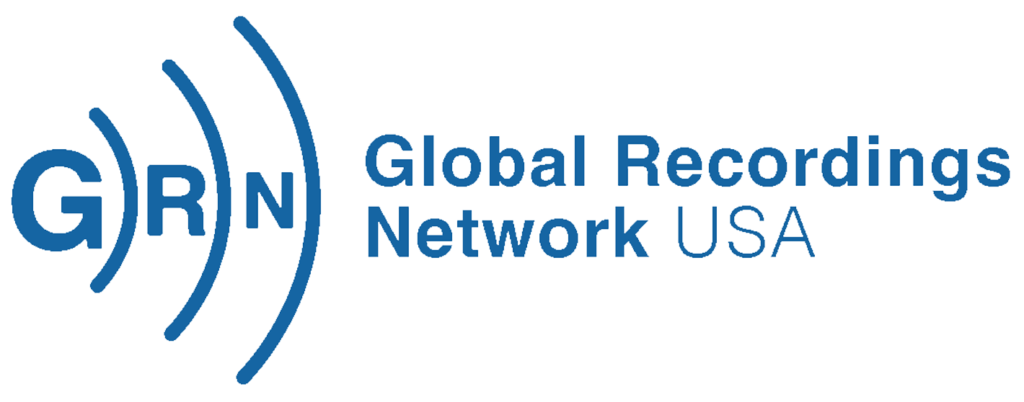May 15, 2025
Sharing Gospel Recordings with Oral Learners: A Guide for Missionaries
Those of you seeking to fulfill the Great Commission have done so in many different ways: medical missions, schools, orphanages, street preaching, Bible translation, etc. So much written material, from Bibles to daily blogs, is available in English that many do not realize that this is not always the best way to share the Gospel in other cultures. many have discovered that quite a few of the cultures they work in do not and may never value the written word. The frustration can be intense for those who have spent considerable time and toil to prepare the whole Bible, Scripture portions, Bible Studies, or other teaching materials, only to find them under-used or not used at all.
For over 8 decades, Gospel Recordings/Global Recordings Network has produced audio materials for cultures who cannot or will not) read. These resources are now freely and readily available in most of the world’s languages. Thankfully, many of today’s ministries are seeking to add this capability to their toolbox. GRN rejoices to see this happen! But … a few guidelines.
Pray First: Seeking Divine Guidance for Your Ministry
If you know GRN, you know we emphasize prayer before all. Praying to the Creator God brings eternal wisdom and power into the equation, and that will be needed as you use any tools, no matter how wonderful they are.
Do Your Research: Understanding Language and Communication Needs
As a speaker of a major national language or trade language, do you even know which other languages are spoken in your area of ministry? Do you realize that many in your country or area do not speak the national or trade language? Resources are readily available to check out the facts in your own area. (Try Google!)
Then, how do the people themselves receive information from outside? Radio? Cassette or CD boombox? Phone? Local market and word-of-mouth? Knowing this info helps you form a plan.
Plan Your Approach: Tailoring Evangelism Methods to the Community
Decide on a couple of pathways of presenting the Gospel, especially at first. Have you already planted a church whose people are eager to share the Gospel one-on-one? Is your local population stable and loves to get visitors at their door? Or do you have a street ministry among a more unstable — say immigrant or agricultural — population, and need a different approach? University or trending-younger populations require even different strategies.
And when you know what languages are spoken in your area, get to know the resources available in those languages. You might have people in your church or other sphere who speak some minority languages. But not always. Written resources are available through the Bible Societies or tract ministries. But…
Use GRN Audio Tools: Reaching Oral Learners with Gospel Recordings
… check out the GRN tools available. http://www.5fish.mobi gives you access to many programs in each of thousands of languages. Other ministries such as Jesus Film Project and Wycliffe Bible Translators have supplied additional materials besides GRN’s Words of Life (short topical messages, no pictures), Good News (1 flipchart from Creation to Christ), and Look Listen and Live (longer series on 8 flipcharts).
The beauty of these audio resources is that they can be used in any missionary or evangelism setting. Hospitals have people sitting around, often far from their language area, with time to play Gospel recordings. Street evangelists are wonderful if they speak the language of most of their hearers. But they do run into those who speak “unknown tongues” –what then? And especially in unwelcoming cultures, taking audio materials home to listen to in private is often a good alternative.
Get Involved Personally: Building Relationships Through Gospel Audio
If it is an option, the personal touch brings benefits. Showing someone your 5fish app (free from you phone’s playstore) and asking them if you can play them something in their own language is very often a big hit. Sitting with people in the marketplace, hospital courtyard, or wherever, is showing them you care AND offering them Good News in their own heart language. Plus, you are there to answer questions that may arise.
Follow Up: Strengthening Connections and Gathering Feedback
Whether immediately or later (after they’ve had time to take items away to listen to them), feedback helps. It helps you know how the materials have been received. It helps the listener know you care enough to speak with them again. And — if you find Unrecorded languages in your area and let GRN know about it — it helps us to reach our goal of Telling the Story of Jesus in Every Language.
We will do another blog on how best to find out which language your hearer actually speaks. But til then, enjoy being able to offer any person you meet the opportunity to hear Good News in his or her heart language!
